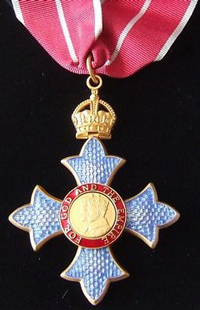

|
|
|
|
|
|

Hallo again to all. So often we are asked in our workaday lives to catalogue our accomplishments. Composing a curriculum vitae or application for university forces us to 'sell' ourselves to others. An annual performance review often serves as a lesson in diplomacy in how to word project goals met without seeming to minimize those above us in the hierarchy. Interviewing for a new position can be fraught with trying to find the balance between underselling and overselling oneself and one's capabilities. All this self-promotion and making sure others know exactly what we have accomplished and what we can achieve is the opposite of our goals in our lives as Christians. At least, it ought to be. There is a natural wish to be recognized for our efforts, but is our primary motivation to have others congratulate us for our good works? We were perusing a church publication from February 1935 in which we found the following item entitled, Confessions of a Parson: The Danger of "Doing Good":
We ask again: Do we participate to be recognized? Do we seek to have others congratulate us for our good works? We have been in situations where we have not liked how our conscience has answered on our behalf. For many of us, the past few weeks have included the readings from I Corinthians where Paul writes about members of the body having different gifts, with all needed to make the body of Christ whole. Our personal experience is that the Holy Spirit prods us to use different gifts at different times in our life. Sometimes we may be called to lead or speak publicly. Other times we may called to be a sheep in the pews letting others take on the mantle of public leadership. No matter which of the many roles we may play in parish life, it takes consistent effort to remove the 'I' from our life in community at church. A few months ago, we were helping a relative sort through drawers and piles of papers and other detritus that gathers when one lives in a home for 35 years. We came across this photo and asked if we might take it with us. We do not know the priest or deacons. Our relative mentioned the priest served in a community of those with Hansen's disease, more familiarly known as leprosy. She had met him once years earlier when he spoke at her parish. We think she told us his name, but we didn't write it down and don't remember it. If you recognize these gentlemen, please write us. We tucked the picture away on our desk at home, and there it sat becoming buried under the chaos of bills and correspondence that seems to grow exponentially every time we turn around. Until this weekend: an unfortunate spillage of tea caused a major upheaval of the items on our desk. Unearthed from an archaeological pile on the left corner, we found the photo unharmed by the flood of tea. There they were again: three faithful people together serving in an unknown flock. And though we don't know their names, where they were located, or even when the photo was taken, we find it a beacon of hope for the role of the Church in our imperfect world. The black and white scene seems to radiate with their shared mission and the spiritual care they provide as God's ministers on earth. And isn't that the point of ministry? Please write and share your thoughts. See you next week.
|
||
This web site is independent. It is not official in any way. Our editorial staff is private and unaffiliated. Please contact editor@anglicansonline.org about information on this page. ©2015 Society of Archbishop Justus. Please address all spam to press@anglicansonline.org |